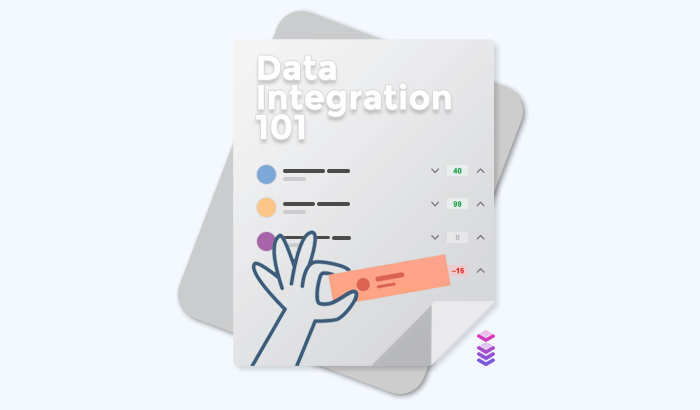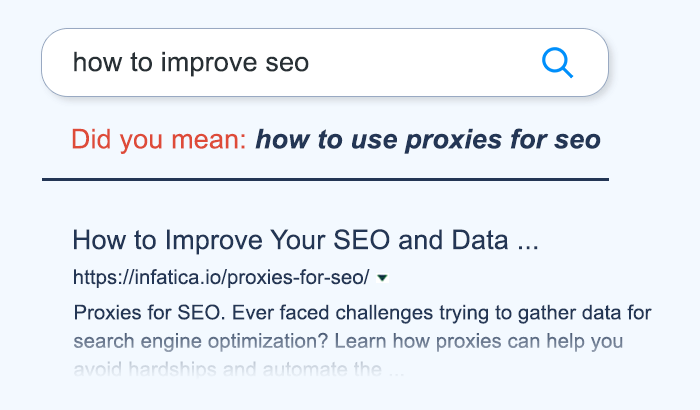
In the competitive world of search engine optimization, data is everything – and proxies are the key to accessing it at scale. Whether you're tracking keyword rankings, analyzing competitors, or running localized SEO campaigns, proxies help you gather accurate, unrestricted search data without getting blocked. In this guide, we’ll explore how SEO proxies work, why they’re essential, and how to choose the right solution for your needs.
How Do SEO Proxies Work?
When you're doing SEO work – like checking keyword rankings, scraping search engine results, or researching competitors – you're sending lots of requests to search engines like Google. If you do this too often from the same IP address, search engines might flag your activity as suspicious and block or throttle your access. That’s where SEO proxies come in.
What a Proxy Does
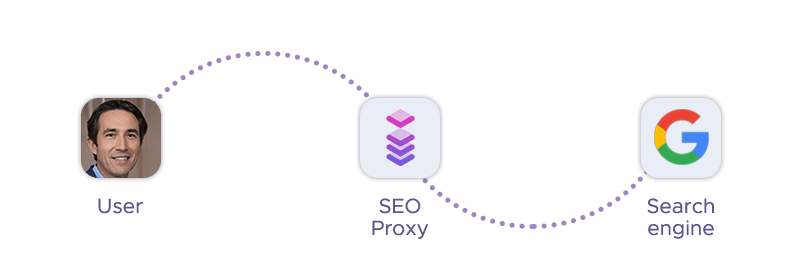
A proxy acts as a middleman between you and the internet. When you use a proxy:
- Your request goes to the proxy server first, not directly to the target website.
- The proxy then forwards the request to the target site (e.g., Google).
- The site responds to the proxy, which then sends the data back to you.
So, instead of search engines seeing your real IP address, they see the proxy's IP.
Why You Need Proxies for SEO
Search engine optimization (SEO) today is as much about data as it is about content. To make informed decisions, marketers and SEO specialists rely on tools that collect vast amounts of search data quickly and accurately. But without proxies, these tools hit roadblocks fast. Here's why proxies are a must-have for modern SEO workflows:
Web Scraping for SERP Tracking and Competitor Research
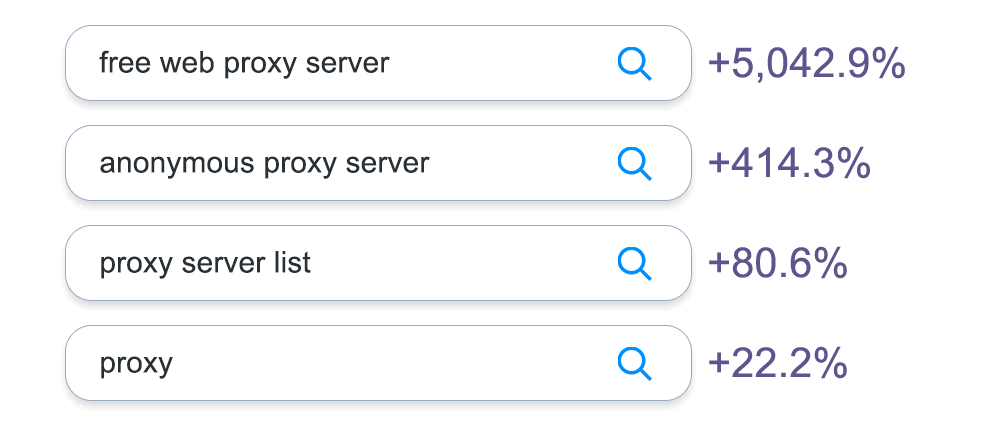
To stay ahead of the competition, you need to know exactly where your pages rank, how search results change over time, and what your competitors are doing. SEO proxies allow you to:
- Scrape SERPs at scale, without being blocked.
- Gather insights on competitors’ rankings, snippets, ad placements, and content strategies.
- Monitor search trends and changes in real time – across thousands of keywords and multiple locations.
Without proxies, scraping this data risks getting your IP flagged, throttled, or blocked by search engines.
Localized Search Results (Geo-Targeting)
Search engines personalize results based on the user’s location. So if you want to see what a customer in Berlin sees when they search for “best running shoes,” you can’t rely on your New York-based IP. Proxies solve this by giving you access to IP addresses from specific cities or countries, allowing you to:
- Track localized keyword performance.
- Audit international SEO efforts.
- Tailor content based on actual regional SERP results.
This level of geographic accuracy is essential for global SEO campaigns.
Avoiding IP Bans and Rate Limits
Search engines have strict limits on how many requests can come from a single IP. If you exceed those limits – even through legitimate data collection – you risk temporary blocks, CAPTCHAs, and skewed or incomplete data.

SEO proxies help distribute your requests across multiple IPs, making your activity look like that of many normal users instead of one bot. This not only protects your tools from being blocked but also keeps your data accurate and reliable.
Automation of Tasks Like Keyword Rank Tracking
Automated SEO tools rely on proxies to operate efficiently at scale. From checking keyword positions to tracking search visibility, these tools send out thousands of queries – far more than a single IP can handle safely.

Using rotating or residential proxies ensures smooth operation of rank tracking tools, continuous access to search engine data, and fewer disruptions from captchas or IP-based restrictions. This automation is what makes SEO campaigns scalable – and proxies are the infrastructure that keeps it running.
Types of Proxies Used in SEO
| Feature | Residential Proxies | Datacenter Proxies | Mobile Proxies |
|---|---|---|---|
| IP Source | Real devices connected to home ISPs | Cloud servers or data centers | Real mobile devices via cellular networks |
| Anonymity Level | High – appear as real users | Moderate – more likely to be flagged | Very High – trusted by most websites |
| Speed | Moderate | Very Fast | Slower due to mobile networks |
| Success Rate for Scraping | High (especially for geo-specific tasks) | High for non-sensitive scraping | Very High – hard to detect or block |
| Best For | Geo-targeted SERP tracking, competitor analysis | Bulk scraping, automated rank tracking | Mobile SEO testing, ultra-anonymous scraping |
| Cost | Higher | Lower | Highest |
| IP Rotation | Yes – via rotating pools | Yes – fast and flexible | Yes – but often slower and more limited |
| Risk of Blocking | Low | Moderate to High (if overused or flagged) | Very Low |
| Geo-targeting Capability | Excellent – wide country and city-level coverage | Limited – mostly generalized or regional IPs | Good – based on mobile carrier networks |
How to Choose the Right SEO Proxy Provider
Not all proxies are created equal – especially when it comes to SEO. Whether you're tracking thousands of keywords or running a localized SERP campaign, your proxy provider directly impacts your success. Here's how to evaluate and choose the right partner for your SEO needs.
1. Speed and Performance
Speed matters. Slow proxies can bottleneck your scraping tasks, delay reporting, or cause rank tracking tools to time out. Premium providers like Infatica offer:
- High-speed connections (especially important for datacenter proxies).
- Low latency and minimal downtime.
- Optimized infrastructure to handle large volumes of concurrent requests.
2. Success Rate and Stability
A good success rate means your proxies can access target sites consistently without being blocked or flagged. Here’s what Infatica can offer:
- High connection success rates (95%+) across popular search engines like Google, Bing, and Yahoo.
- Stable, non-abusive IPs that aren’t frequently blacklisted.
- Built-in features like automatic retries or fallback IPs.
Consistency is key when you're collecting data at scale.
3. Rotation and Session Control
IP rotation prevents detection and blocking by changing the proxy IP for each request or after a set interval. For instance, Infatica offers:
- Rotating proxies with customizable rotation logic (e.g., per request or per session).
- Sticky sessions, so you can maintain the same IP when needed (useful for scraping paginated SERPs or logged-in sessions).
Flexible rotation options help you balance stealth with task-specific needs.
4. IP Pool Size and Diversity
The larger and more diverse the IP pool, the better your chances of avoiding detection. Infatica provides:
- Millions of IPs, spread across countries, cities, and ISPs.
- Support for country- and city-level targeting, especially if you manage international SEO campaigns.
A varied IP pool gives you the freedom to collect data from anywhere in the world.
5. Customer Support and Documentation
When something breaks, fast and knowledgeable support is critical. Look for:
- 24/7 technical support via chat or ticket system.
- Comprehensive documentation, onboarding guides, and real-time dashboards.
- Clear service-level agreements (SLAs) around uptime and issue resolution.
Responsive support turns proxy problems into minor speed bumps, not roadblocks.
Common SEO Tools That Work Well with Proxies
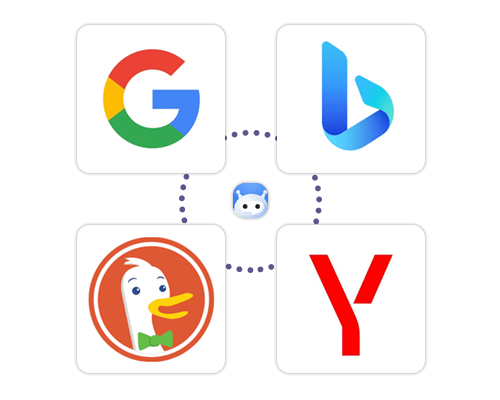
Proxies are the invisible engine behind many of the SEO tools professionals use every day. Whether you're tracking rankings, auditing websites, or scraping search engine results, integrating proxies can supercharge your efficiency – and keep you off Google’s radar.
Here are some of the most common SEO tools that pair seamlessly with proxies:
1. Rank Tracking Tools
Tools like SEMrush and Ahrefs rely on sending queries to search engines to check keyword positions. When run at scale, this can quickly trigger IP bans without proxy protection.
Proxies allow rank trackers to pull accurate, geo-targeted rankings without restrictions – and rotating proxies ensure each keyword check appears to come from a different user, reducing the risk of CAPTCHAs or blockages. Advanced users also build their own trackers using Python scripts or tools like Scrapy or BeautifulSoup, all of which benefit from proxy rotation and localization.

2. SERP Scrapers and Data Extraction Tools
Search engine results pages are full of useful SEO data – from featured snippets and ads to video placements and local packs. But scraping these pages in real time requires proxies.
3. Keyword Research and Content Intelligence Platforms
Custom-built scrapers for tools like Google Suggest rely on querying search engines repeatedly. This is another scenario where proxies are essential:
- Enables bulk keyword discovery from multiple locations.
- Ensures you don’t get flagged for automation.

4. On-Page and Technical SEO Tools
While many tools focus more on your own site than external data, proxies can still be useful if you're:
- Crawling competitor websites.
- Auditing large-scale client websites from different geos.
- Testing page accessibility across regions.
5. Local SEO & Mobile SEO Testing
When accuracy matters – especially in local search or mobile-first indexing – proxies become a must. Use mobile proxies to simulate mobile search behavior – and see results exactly as users would in a specific city or zip code.
Frequently Asked Questions
You can also learn more about:

SEO proxies are a must for scalable SEO tasks like keyword tracking, SERP scraping, and avoiding IP bans. Find out how proxies can boost your data collection efforts and keep your campaigns running smoothly!





